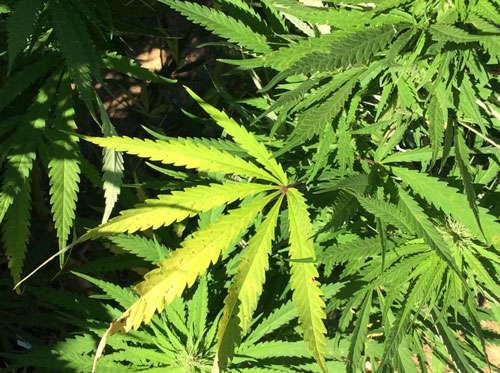Marijuana, a perceptual phenomenon across the globe has spread wildly amidst this generation irrespective of health risks still in exploration. The aura has appeared to lean in favor of legalization considering medical cannabis is authorized in 34 U.S states, and recreational sales are permitted in 10 of them. Undoubtedly, weed is taking off and stirring up a myriad of various conversations—good and bad.
However, in accordance to new research from the journal of Lancet Psychiatry, “The more cannabis you consume the more likely you are to develop a psychotic disorder.” The new evidence is consistent with prior trials that suggest onerous use and high THC concentration cannabis —a 10% decoction of THC (a.k.a. the psychoactive substance within cannabis) or higher —can be damaging to aspects of mental health. In order to further understand this theory it is essential to establish what exactly psychosis is.
According to the National Institute of Mental Health, “during a period of psychosis, a person’s thoughts and perceptions are disturbed, and cognition and emotions are ultimately so impaired that contact is lost with external reality.” In a nutshell, a person experiencing a psychotic episode may undergo some forms of hallucinations, false beliefs, depression, anxiety, sleep problems, social withdrawal, lack of motivation, and difficulty functioning overall. Cannabis sure packs a punch—one full of new knowledge and striking effects. How peculiar that it has the potential to deal such elevated risk considering it is prescribed to most in order to resolve such risks. This may be plausible but sounds far fetched through a common-folk lens. Nevertheless, the study found that those who used pot daily were three times more likely to have a psychotic episode compared to an individual who has never been exposed to the drug. Those who started using cannabis at the age of 15 or prior to had a slightly more elevated risk than those who started using in later years. To be clear, the possibility of psychosis is only relevant for those who smoke high THC infused-marijuana. Does this remain true to a regular THC-infused strain? How distant is a low THC-infused strain from the resulting factors of psychosis? The researchers identified 901 people aged 18 to 64 who were diagnosed with their first psychiatric incident between May 2010 and April 2015. Not exceptionally recent in proximity to this current year, however, the average potency of weed of U.S. in 2017 was 17.1 percent, up from 8.9 percent in 2008. This data may only be reflective of the most recent act to legalize. For those who used high-potency pot on a daily basis, the risk of psychosis was even greater — four times effective than an unexposed individual.
Across the board, people make their own choices and use marijuana for a myriad of reasons. Whether if it is utilized at a high rate with a high potency or at a low rate with a low potency it is pivotal to acknowledge the health facts it holds. It seems as though this research is selective—it ignores the reality of crucial worldly aspects. It is be presenting as if psychosis is normalized where as psychosis is exceptionally selective. Most weed accessible recreational holds far greater than a 10%—THC potency, so what is said can easily be acknowledged as sensationalized.





![[Both photos courtesy of sonoma.edu]
Ming-Ting Mike Lee stepped in as the new SSU president following Sakakis resignation in July 2022](https://sonomastatestar.com/wp-content/uploads/2024/04/CC4520AB-22A7-41B2-9F6F-2A2D5F76A28C-1200x1200.jpeg)


























